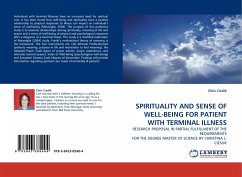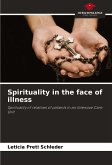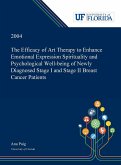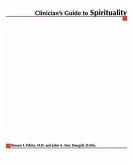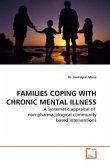Individuals with terminal illnesses have an increased need for spiritual care. It has been found that well-being and spirituality have a positive relationship to physical responses to illness can impact an individual's sense of well-being (Meraviglia, 2004). The purpose of this predictive study is to examine relationships among spirituality, meaning of life and prayer and a sense of well-being of physical and psychological responses after a diagnosis of a terminal illness. This study is a modified replication of Meraviglia (2004) study. Frankl's motivational theory of meaning is the framework. The four instruments are: Life Attitude Profile-Revised (patients meaning, purpose in life and motivation to find meaning), the Adapted Prayer Scale (types of prayer activity, prayer experiences, and attitudes toward prayer), Index of Well-Being (psychological well-being) and Symptom Distress Scale (degree of discomfort. Findings will provide information regarding spiritual care needs of terminally ill patients.
